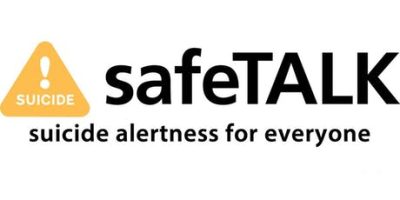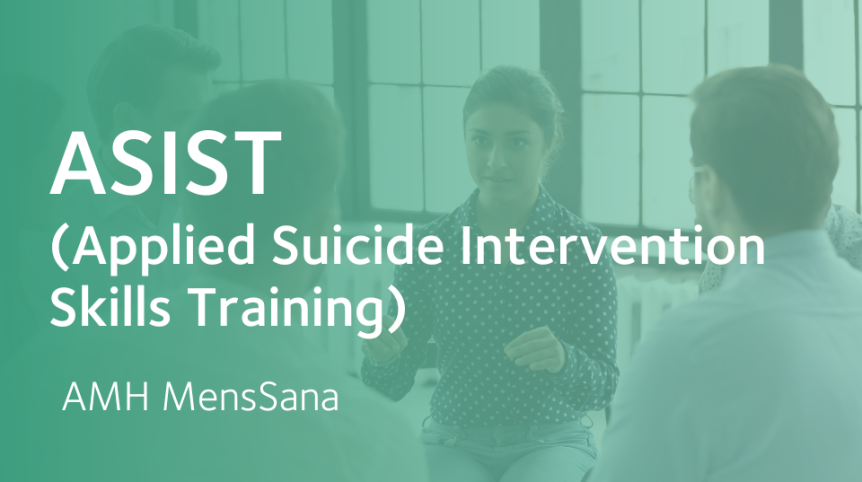How did you get involved with the NI mental Health Arts Festival?
My involvement or my journey started many years ago. I qualified as an Arts and Design teacher in 1983 and I always had an interest in Human Rights and Mental Health as well as Arts and Culture. When I moved to Fermanagh I didn’t know anybody there, but I quickly became engaged as a volunteer with the local theatre group and from there arts and cultural groups. Over the years I would have chaired a number of arts festivals.
Did you work as a teacher during this period?
Yes I taught successfully in Fermanagh,before becoming an Arts Adviser, for 10 years and alongside that I taught adults in the evenings through Fermanagh College. I had quite a lot of older students, some of whom would have been in their late 80’s. One of the students was an ex Japanese Prisoner of War, Harry Cooper, who was so inspiring.
I realised then, that the evening classes for adults were providing great solace for the students. The classes provided stimulus, the potential to build friendships, companionship, and a sense of community. I think also that creativity was very useful in providing a platform to transform people’s lives.
Later on, I didn’t need persuading that the arts could play a huge role in improving our mental health and well-being.
You were developing your thoughts then on the arts and mental health?
As a young teacher I would have experienced, through my work, children and adults who confided in me about the challenges in their lives and in many cases people needed a safe space, a sanctuary, to deal with those experiences.
Now, in a school setting there are areas where Pastoral Care provides that sanctuary, and one of my first experiences as a teacher was a young person who wanted to self-harm and that was a very difficult situation to deal with. The availability of the Pastoral Care system, within the school, did offer support to that young person.
At the same time, I had friends and colleagues who were confiding in me about very challenging times in their lives, and some who were planning very extreme measures to deal with those circumstances.

How did that affect you?
I think that affected me in two ways. I went into overdrive at work. I was so focused on keeping people’s secrets because I was sworn to secrecy. I recognise that I experienced severe exhaustion & burnout, It impacted upon my own mental health.I found it hard shouldering so much pain of others confidentially, and the need to be informed to signpost those that need specialist support for their Mental Health. I think I was taught valuable lessons then, that no-one can carry everyone’s problems with them, let alone deal with their own difficulties, all by themselves. Around that time, I got involved in training regarding mental health and completed The ASIST Programme & Safetalk Programme.
What else happens during that period?
Tragically my family was bereaved by suicide. We lost two sisters in our own family. My sister, Roisin took her own life in 1998, and that was heart-breaking. We came from a tiny village on the shores of Lough Neagh and it was devastating. We were part of a small community, a loving family and a loving community, and it had a huge impact. It was a total shock.
I was also experiencing difficult times personally, and at that same time I was providing support for my parents. I was also working as a volunteer for the Aisling Centre dealing with suicide awareness and support which I was able to do because I was dealing with strangers. But when we lost our first sister I found that I couldn’t do it any more, I needed to support my family.
I wanted to protect my parents, but one of the counsellors said to me that my approach of wrapping my parents in cotton wool, trying to protect them, was not perhaps the best way to support them through grief. “ You have got to hurt before you heal “ and “no one persons journey is the same.”And from there we encouraged our parents gently & compassionately to talk,to get back out into the community and bit by bit we started to pull our fractured pieces of our family back together again.

It sounds as if through lived experience, your support work and training, you developed your thoughts about the arts and mental health?
There are all sort of lessons for me through that period. Then, mental health just wasn’t discussed. You, as a young teacher, you couldn’t talk about experiencing stress or anxiety or indeed depression. There was also the question of people confiding in you and swearing you to secrecy. You were not allowed to talk to anyone else about these problems because you had to respect people’s privacy.
Within our family, we didn’t have any idea our sister was feeling the way she was, and on top of that in rural, Catholic, communities, suicide was seen as a sin. It was something to be considered very shameful. That was another very difficult situation to deal with.
All of these experiences started me on a journey of self-awareness and self-compassion but also learning and developing the processes which you use to work with other people experiencing mental health difficulties.It has been a journey of self compassion & enlightenment, challenges I would have preferred my family or any family to go through. That is why my involvement in the NI Mental Arts Festival means so much. Life is precious. Our creativity & self expression is a gift.Our self compassion & compassion for others can I believe make a significant difference to our purpose & quality of life.For that I’m grateful.
